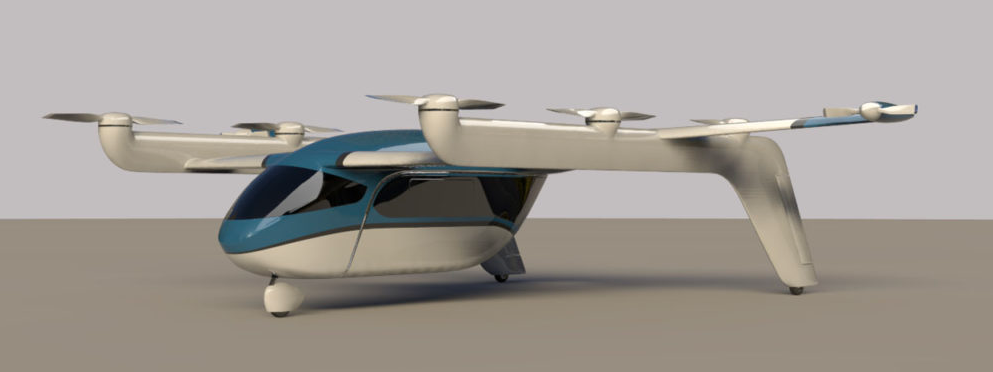By GARRY RAYNO, InDepthNH.org
CONCORD — A $4.1 billion update of the state 10-year Transportation Improvement plan is part of an omnibus transportation and safety bill approved Friday by the Senate Transportation Committee.
The bill also contains changes to commercial driving statutes and allows for better license data sharing with other states in reaction to the crash about a year ago in Randolph that claimed the lives of seven motorcyclists.
And the bill would allow “roadable aircraft” or cars that fly to register and use state roads but only land and take off from airstrips.
The provision would be the first of its kind in the country.
“We are entering unknown territory of what the funding is going to be,” said committee chair, Sen. David Watters, D-Dover. “We hope the revenue recovers from the road toll (gas tax).”
The House failed to pass its version of the 10-year Transportation Improvement Plan the day before, when it failed to suspend the rules to allow action after the deadline passed while the legislature was suspended due to the coronavirus pandemic.
The proposed improvement plan spends about the same amount of money as in the past, but rearranges some of the bonding, and suspends the betterment program (highway and bridge maintenance and preservation) for the next fiscal year to allow flexibility for the Department of Transportation because of the economic effects of the coronavirus.
Under the plan, the 3 cents of the gas tax for the betterment plan would be suspended, and the amount of money going to cities and towns would increase above the 12 percent they normally receive under the program. The state would issue $35 million in bonds for municipal bridges.
Under the “financially constrained” plan, some projects would be delayed for two years including the proposed expansion of I-93 from Bow through Concord.
“We are delaying some projects we ought to be doing,” Watters said, “but what else can we do.”
The highway plan also includes money to remove the Exit 11 toll plaza in Merrimack after the toll was reduced to zero and will allow the Bedford tolls to be converted to all electronic tolling.
The committee as well as Department of Transportation officials are concerned about the uncertainty of federal funding levels but DOT Commissioner Victoria Shaheen said they should know more in a couple of weeks as legislation is finalized in Congress.
Of the $4.1 billion, $3.1 billion is for highways and bridges, while the remaining $1 billion is for rail lines, public transportation, state and municipal airports, turnpike renewal and replacement projects and the Capitol Corridor Rail Project, linking the state by rail to Boston.
Commercial Licenses
Under the bill, a person with a commercial license who is found driving under the influence would have his or her license suspended immediately.
The bill also removes a provision allowing the safety commissioner to waive a driving skills test and makes it easier for the state to share driving license data with other states.
The driver of a commercial truck that allegedly struck and killed the seven motorcyclists in Randolph had been arrested for driving under the influence in Massachusetts, but the state failed to suspend his license. An investigation into the incident found states were lax in sharing information on suspended driving licenses. The case hasn’t gone to trial.
The Jetsons
The committee heard from executives from three companies developing flying cars, one based in Nashua, another on the West Coast and the other a Dutch company.
Sam Bousfield, the CEP of Samson Sky, based in Redmond, Oregon, said he was impressed with the state’s legislature and its ability to reach an agreement that is satisfactory to all the stakeholders.
“The day we have dreamed of for decades is finely here with flying cars,” Bousfield said.
Under the bill, roadable aircraft would be added under the vehicle registration and inspection sections of motor vehicle statutes.
The vehicle would be required to take off and land at an airstrip and would be forbidden from landing or taking off on a highway.
The company Terrafugia began in Woburn, Mass., but is testing and constructing the crafts at Nashua Airport.
“They drive like a car, but they fly like a plane,” said Kevin Colburn, vice president of Terrafugia.
Vehicle Study
The bill also establishes a commission to study the use of non-traditional vehicles like golf carts on state roads.
While much of the study would center on off-road vehicles using highways in the North Country, one of the sponsors of the bill said there is another problem.
Rep. Carol McGuire, R-Epsom, said some of her constituents use golf carts to travel around town. She said the low-speed vehicles use roads with cars traveling much faster creating a safety issue.
“This is an opportunity to look into this and get some sensible answers,” she said.
Elizabeth Bielecki, Motor Vehicle Division director, said some of the people to be appointed to the commission are experts.
“There are no good or clear answers,” she noted so the study commission should help.
Taxis and TNCs
The bill would also align state law with federal regulations so that taxi cab fees charged at Manchester-Boston Regional Airport would also be charged to transportation network companies like Uber and Lyft.
The airport charges a fee for picking a passenger up at the airport and that would be applied to the other companies under the bill.
The change allows the airport to access additional federal money.
Hudson Technical Center
The bill would also provide $2.55 million to finish work on the Wilbur H. Palmer Career and Technical Education Center located at the Alvirne High School in Hudson.
The committee used surplus money from capital projects already completed.
The Senate meets Tuesday in Representatives Hall.
Garry Rayno may be reached garry.rayno@yahoo.com.





